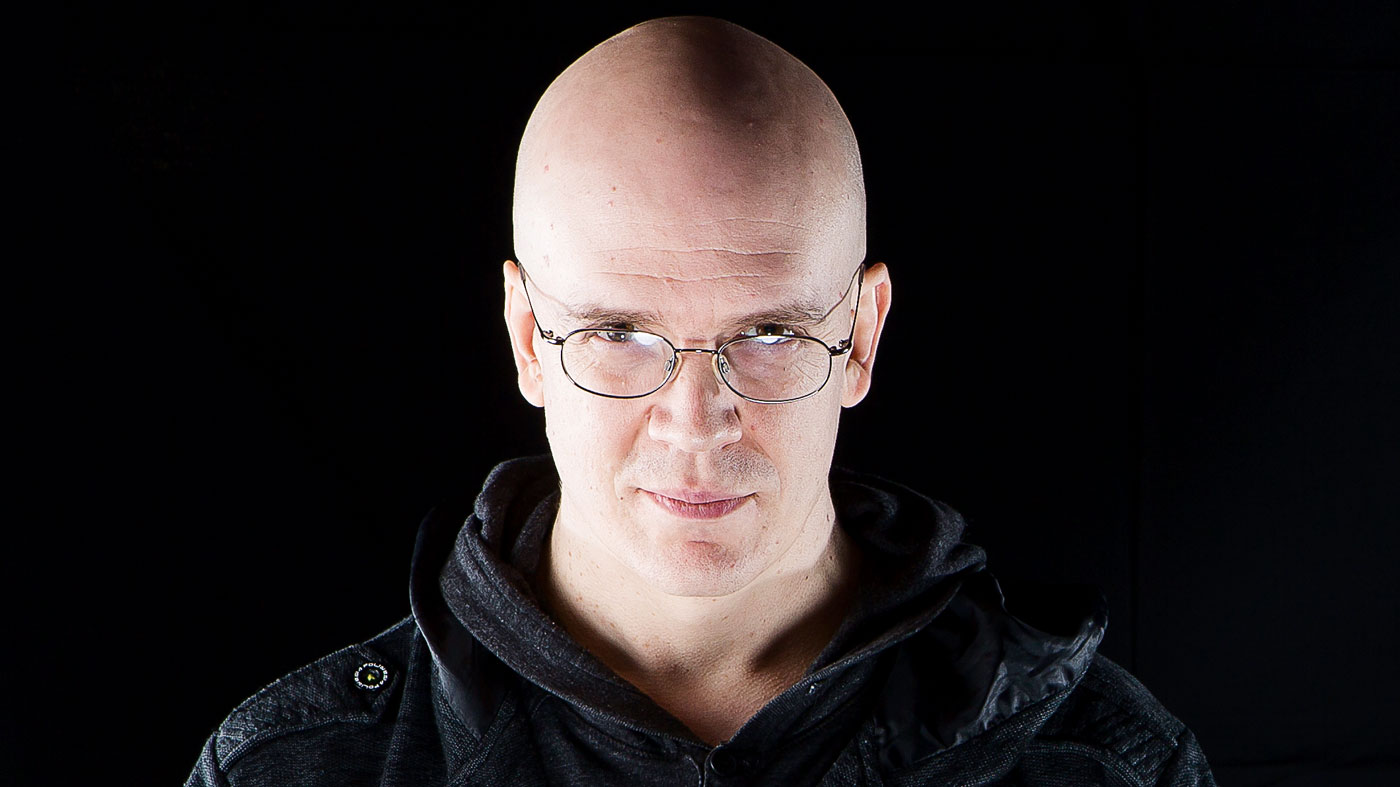Devin Townsend’s riff-writing masterclass
Metal king reveals essential guitar tips

"Find something that you love and then find notes on your instrument that remind you of that"
When it comes to advice for writing riffs, Devin Townsend is adamant that it’s all about doing something that you love.
“It's the equivalent of having a child; they tell you that you should encourage them to find something that they love to do and see if they can make money at it because then they will have a good life. It's the same thing with writing music. Find something that you love and then find notes on your instrument that remind you of that. That is a good place to start.”
We certainly wouldn’t argue with that, and in fact this is just the first of a long line of sage pieces of advice that the recently crowned Riff Lord shares with us during our chat backstage at this year’s Download festival.
Here, we present Devin Townsend’s essential riff-writing masterclass.
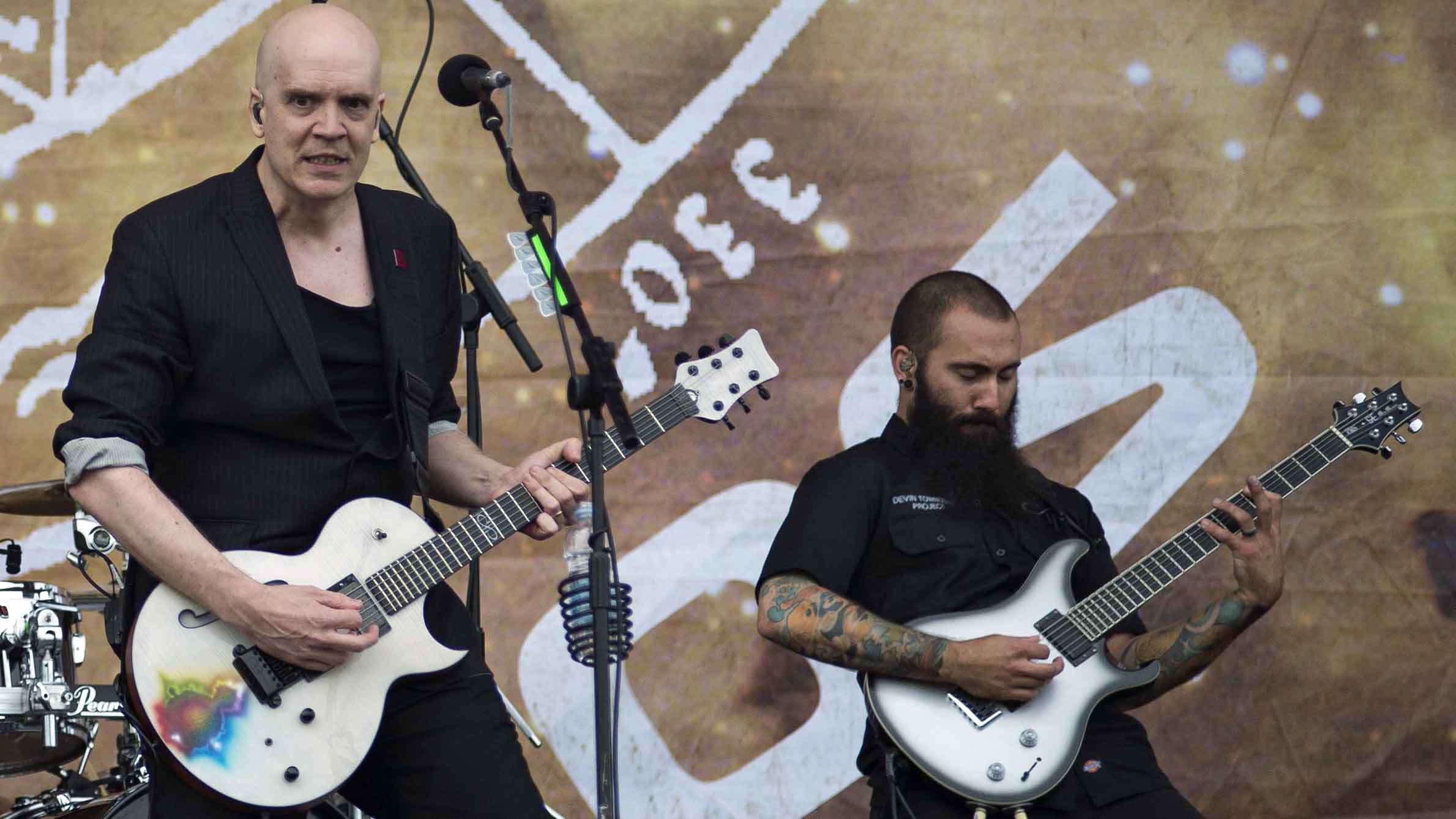
Think about melody
“I think focusing on the melodic aspects of a guitar riff is something that I never really dove into early.
I used the guitar as a tool to act as a foundation for orchestration and that has really worked for what I do...
“I became very chordal. I used the guitar as a tool to act as a foundation for orchestration and that has really worked for what I do, so I wouldn’t change that, but there are some times when I hear a real legitimate riff like a Lamb Of God or Mastodon or Megadeth and I think it is really cool, but it is not how I think about the instrument.
“If I could go back to when I was first starting out, I would encourage myself to participate in that a little bit more.”

Know that there’s more than one way of working
“How I approach writing a riff depends on what I have at my disposal. I spend a lot of time with a guitar in my hands in one way or another, whether it's plugged into an amp, an acoustic or a bass.
“I don’t think there is one method that I have found that results in a tried-and-tested way of writing music. The only thing I would suggest is to maintain the faith that your subconscious mind is very adept at collecting the information that you gather.
I stockpile ideas and there is no rhyme or reason about how they turn into song
“I think a lot of times you think that you have to work in a certain way or you’re going to lose it. You might think that you need to be in a certain environment otherwise the ideas and riffs will not appear.
“In my experience, when the time comes for me to commit the music to a recording, it will have all been stockpiling. The more I relax into the fact that those ideas will always be there, the less that writer’s block becomes a liability. A song might start with a guitar, a vocal, a keyboard, a bass or a piece of wood. I like to think that if an idea is emotionally important enough to you then it will find a way to articulate itself.
“I stockpile ideas, and there is no rhyme or reason about how they turn into songs. A lot of times, the stockpiling of riffs like migrating one to another doesn’t really happen with me. I am more vision-orientated and that is very fortunate.
“From the gestation of a song I will have a very clear vision of how I want it to articulate itself emotionally. It is fairly rare that I have things and think, ‘Oh, that would work great there.’ It’s more a matter of just developing each idea individually.”
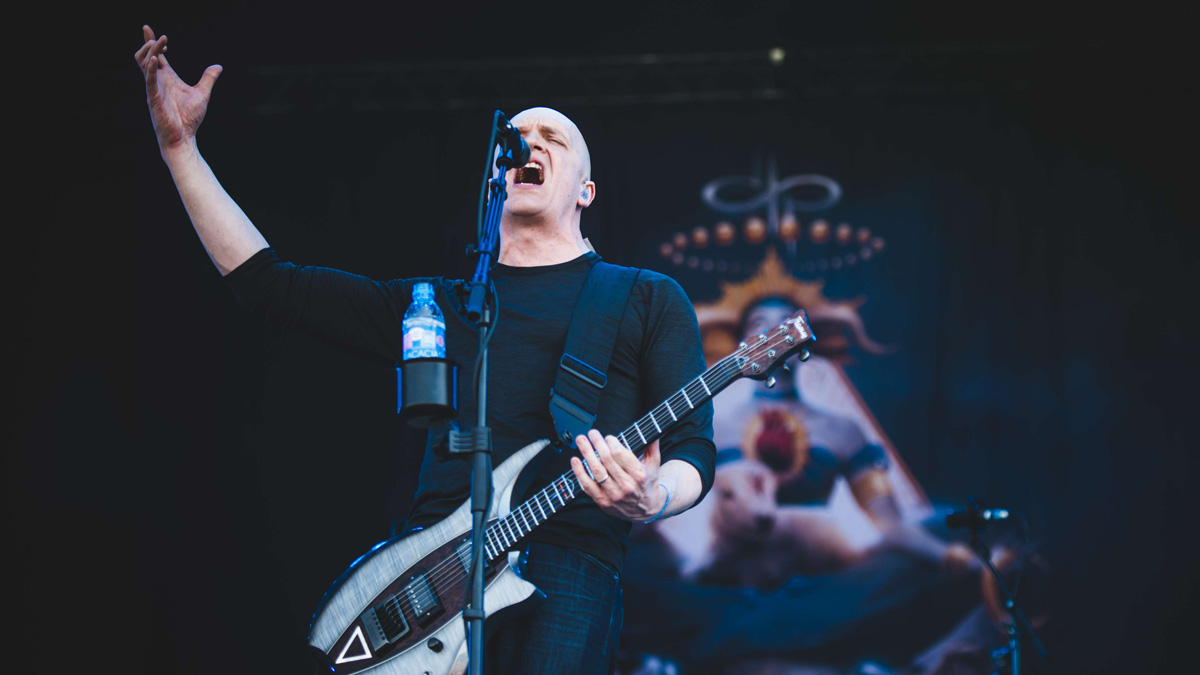
Listen to others
“If you’re stuck with an idea for a riff then take advice from others. For years, I was a legitimate solo artist and I listen back and if I’m honest with those old records there is a bunch of stuff that could have done with some honest, objective advice.
“Now, I don’t feel afraid to ask for advice. I just have to really work on my reactions when someone tells me that they don’t like something! How you react depends on how much of your personality you have invested in what you do.
“When I was younger I don’t think I had as clear a sense of identity as I have now. Now I have a lot of confidence in who I am to the point that someone saying that a riff needs to be better doesn’t feel like someone’s creative critique is based on my personality.”
Put in 10,000 hours
“Putting the time into writing riffs helps. They say you need 10,000 hours to become a master at anything; I would say that is a pretty good start for anyone starting to write riffs.
“You have to be confident enough to keep going and get past the criticism of others, particularly when it comes to finding your own voice and sound in your riff-writing.”
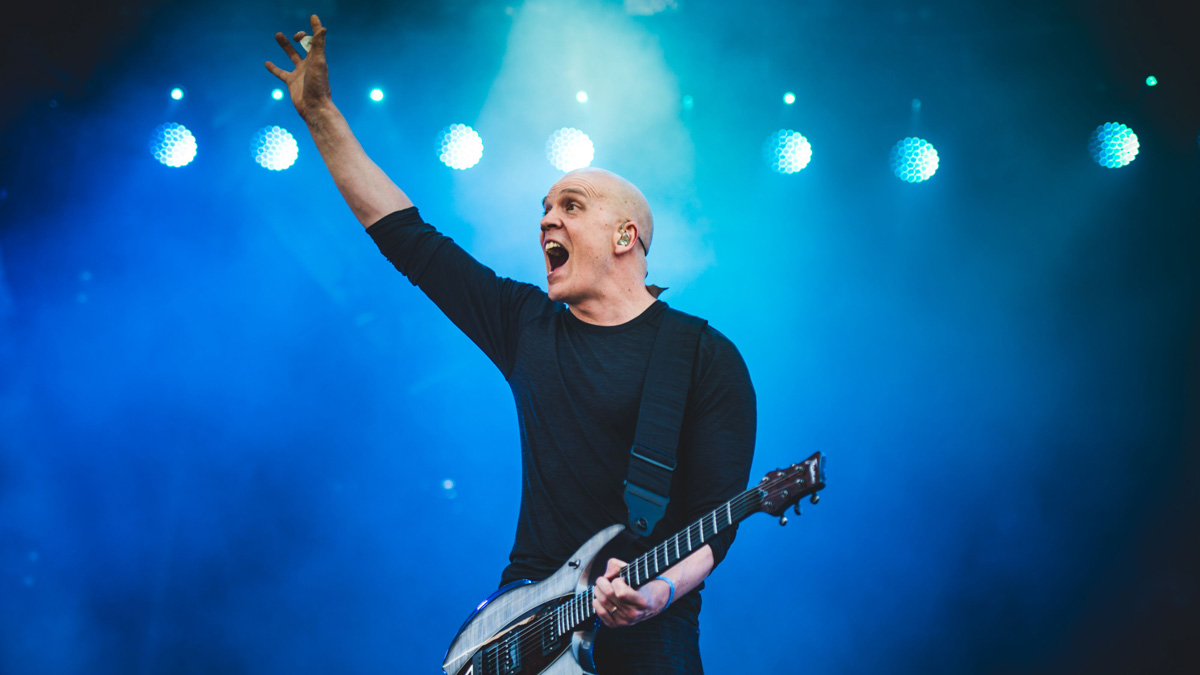
Don’t lose sight of your own style
“To this day I always get criticised for using too much echo, but I like it. Sometimes it is difficult because you are second guessing. Even the soundman will say there’s too much echo, but I like it.
“There is a different connection to it, but that doesn’t mean that it is wrong. I think that if you as a guitar player have something about your style that you enjoy yet other people say it is not appropriate to whatever is happening, you’ve just got to fuckin’ do it anyway.
To this day I always get criticised for using too much echo, but I like it
“Sometimes you need the wherewithal to say no. If you are soliciting advice and you say, 'No, that's different', but if you are not soliciting advice and someone tells you that they don’t like what you do then there is only one option, and that is that you have to tell them to stuff it.”
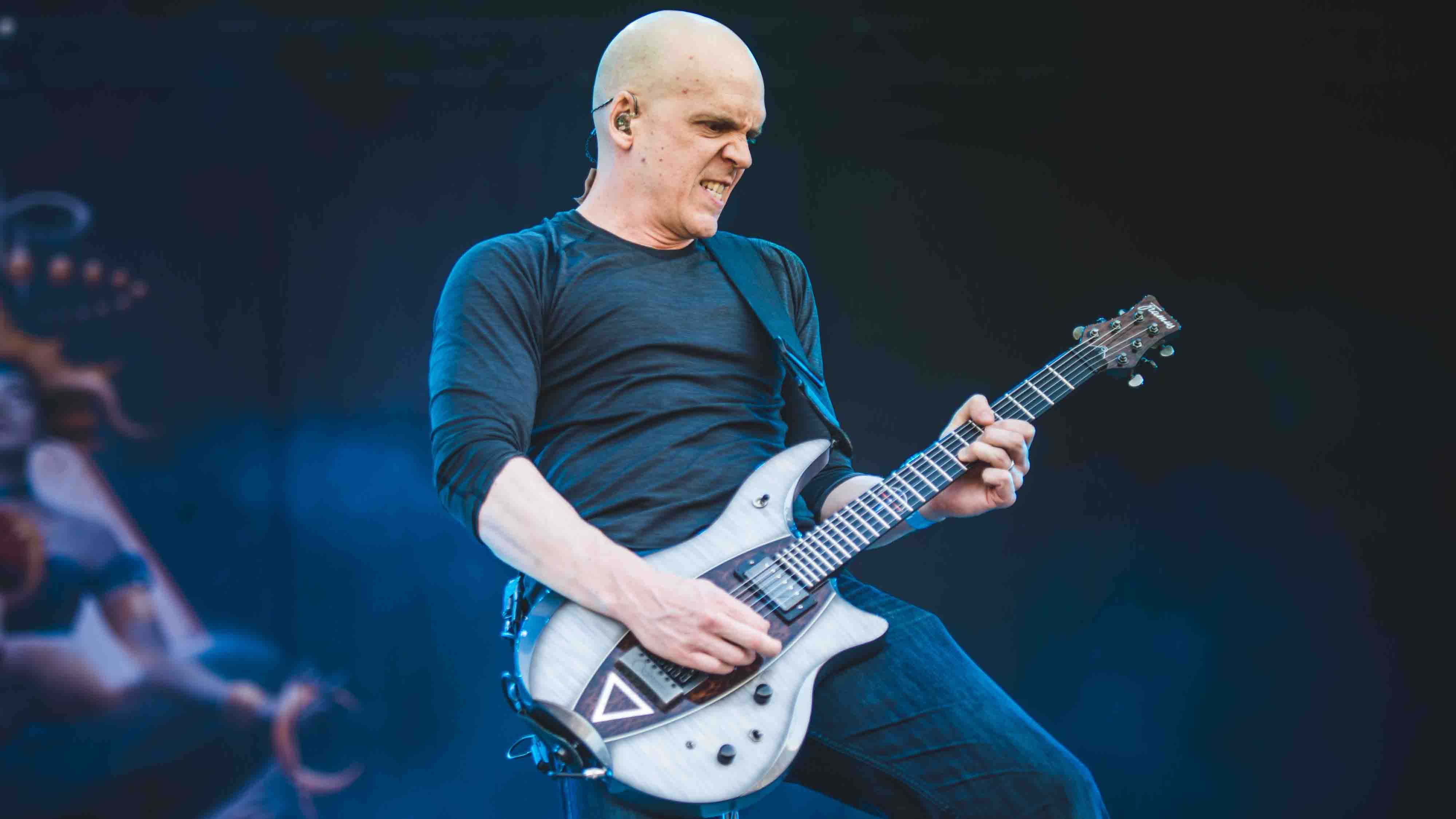
Spend some time alone
“Time on my own really helps in keeping my riff-writing fresh.
“I think it is good for me to forget that other people listen to what I do. The more I can participate with myself in an isolated way the more I can continue to play.
“If I don’t like it then no-one else who has any investment in what I do is going to like it.”
You can force it… but don’t
“Music can be forced, unfortunately, but in a perfect world you don’t want to force it.
“I’m writing three or four more projects of different styles at the moment. When it comes to thinking melodically, I just focus on what I want to write at that time, then it never become an issue.
“If I have four projects, I might sit down to write one and think that I don’t want to write for that project. I will move on to one that I do want to write about and then it will come out naturally.”
Rich is a teacher, one time Rhythm staff writer and experienced freelance journalist who has interviewed countless revered musicians, engineers, producers and stars for the our world-leading music making portfolio, including such titles as Rhythm, Total Guitar, Guitarist, Guitar World, and MusicRadar. His victims include such luminaries as Ice T, Mark Guilani and Jamie Oliver (the drumming one).
